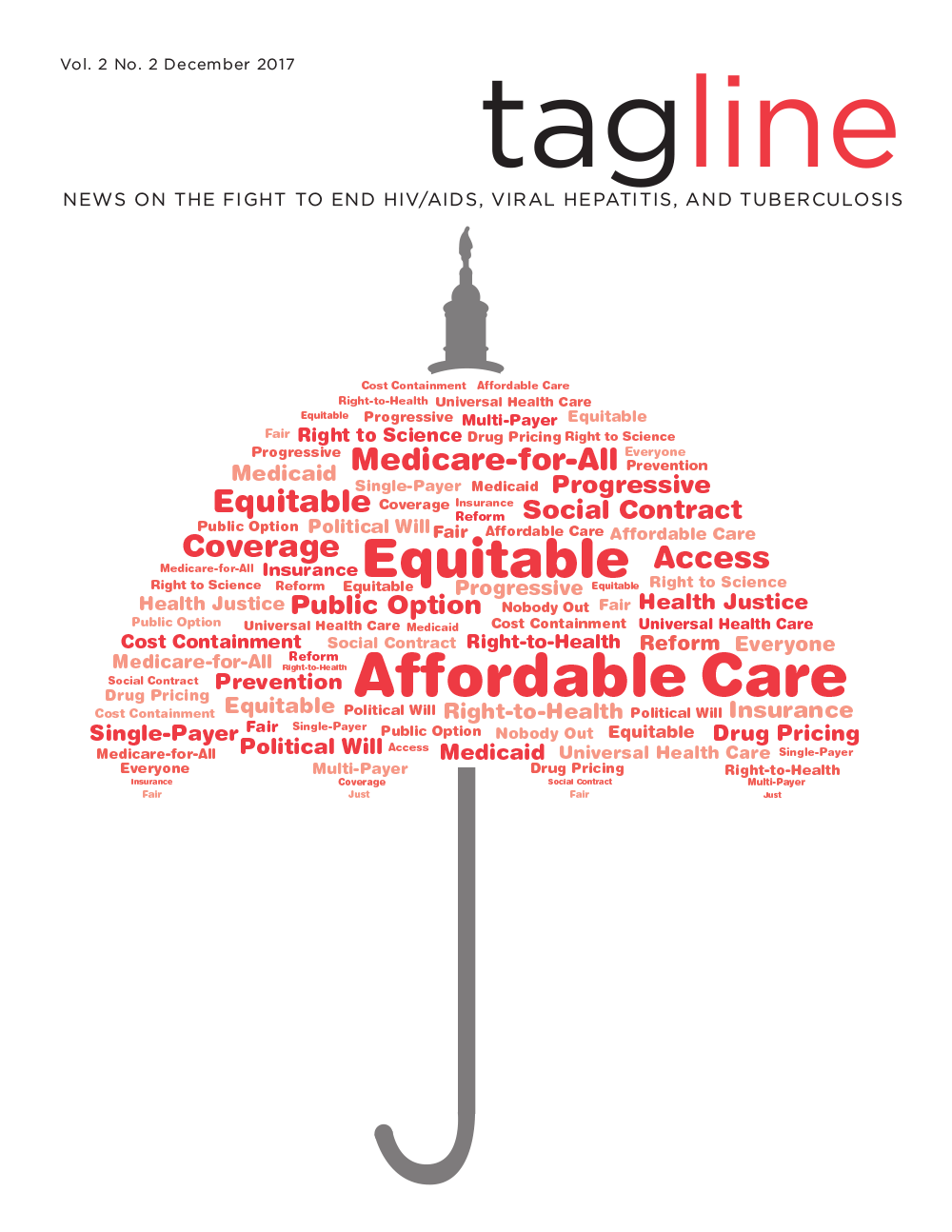December 2017
Arguments favoring universal health care (UHC) are easy. Achieving political consensus as to the best strategy to achieve this is considerably more vexing. This is particularly true in the U.S., where the Affordable Care Act (ACA) patchwork of legislation and regulations has faced a barrage of executive and legislative attacks since the beginning of the year. And although the ACA and expansion of Medicaid in 32 states represents the closest the U.S. has come to ensuring UHC for its citizenry, it continues to fall short for millions of Americans, meaning that it must be either repaired or replaced with an entirely new system that ensures equitable access to care.
In the Fall 2017 issue of TAGline, we explore the political feasibility and sustainability of UHC in the U.S. UHC is, first and foremost, a human right. However, it will require robust advocacy to galvanize bipartisan support for guaranteed coverage and to rein in the high cost of health care and prescription drugs. But the potential merits are clear, notably in efforts to lower HIV incidence and end HIV/AIDS as an epidemic in the U.S. once and for all.
In this issue of TAGline:
Everybody In, Nobody Out
By Tim Horn
Coverage Isn’t Care
By Annette Gaudino
The Long Game for Health Justice
By Suraj Madoori and Maximillian Boykin
Universal Health Care and Prescription Drug Pricing
By Tim Horn
Universal Health Care and Reducing HIV Incidence
By Richard Jefferys
Ending the Epidemic without Medicaid Expansion?
By Jeremiah Johnson & Kenyon Farrow

